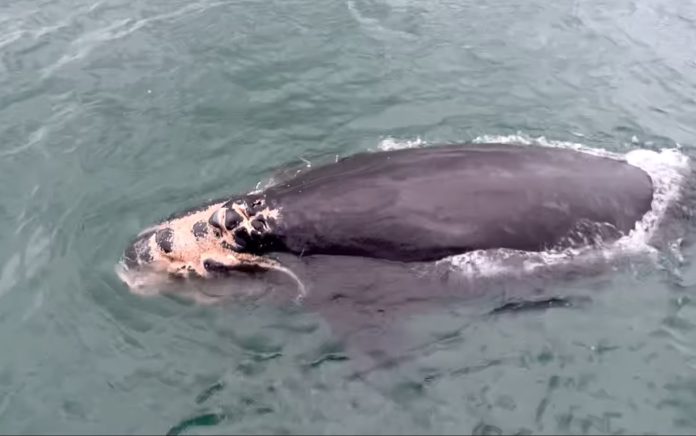
Critically Endangered North Atlantic Right Whale Calf Seriously Injured By Vessel Strike Off The Coast Of South Carolina
You can help all animals and our planet by choosing compassion on your plate and in your glass. #GoVeg
RELATED ARTICLES
Pressure Mounts For Arizona To Ban Dog Pack Hunting Of Mountain Lions, Bears & Other Critical Species
Conservation groups have submitted a petition to the Arizona Game and Fish Commission urging a ban on the use of dog packs for hunting...
Help Save Millions Of Lives This Holiday By Choosing Compassion On Your Plate; Adopt A Turkey Today!
As Thanksgiving approaches, we hope you enjoy a warm and safe holiday. We encourage you to make a compassionate choice by leaving animals off...
Giraffes Are One Step Closer To Receiving Vital Endangered Species Act Protections
In response to a petition and subsequent lawsuit by conservation and animal protection organizations, the U.S. Fish and Wildlife Service (USFWS) has proposed listing...
Popular stories
News
Join Mercy For Animals On June 10th For Their HOPE Gala Honoring Dr. Jane Goodall, Hosted By Tabitha Brown
Photo by: Vincent Calmel
Mercy For Animals, one of the world’s leading nonprofit organizations dedicated to preventing cruelty to farmed animals and promoting compassionate food choices,...
News
Breaking! More Than 300 Elephants Have Mysteriously Died In Botswana With No Evidence Of Poaching
The mysterious deaths of hundreds of elephants in Botswanan have concerned people around the world looking for answers.
“A catastrophic die-off of elephants is happening in...
News
Help Save Millions Of Lives This Holiday By Choosing Compassion On Your Plate; Adopt A Turkey Today!
As Thanksgiving approaches, we hope you enjoy a warm and safe holiday. We encourage you to make a compassionate choice by leaving animals off...


